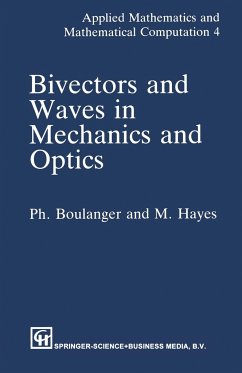Bivectors occur naturally in the description of elliptically polarized homogeneous and inhomogeneous plane waves. The description of a homogeneous plane wave generally involves a vector (the unit vector along the propagation direction) and a bivbector (the complex amplitude of the wave). Inhomogeneous plane waves are described in terms of two bivectors - the complex amplitude and the complex slowness. The use of bivectors and their associated ellipses is essential for the presentation of the 'directional ellipse' method given in this book, in deriving all possible inhomogeneous plane wave solutions in a given context. The purpose of this book is to give an extensive treatment of the properties of bivectors and to show how these may be applied to the theory of homogeneous and inhomogeneous plane waves. For each chapter there are exercises with answers, many of which present further useful properties which are referred to afterwards. The material in this book is suitable for senior undergraduate and first year graduate students. It will also prove useful for researchers interested in homogeneous and inhomogeneous plane waves.
Bitte wählen Sie Ihr Anliegen aus.
Rechnungen
Retourenschein anfordern
Bestellstatus
Storno








